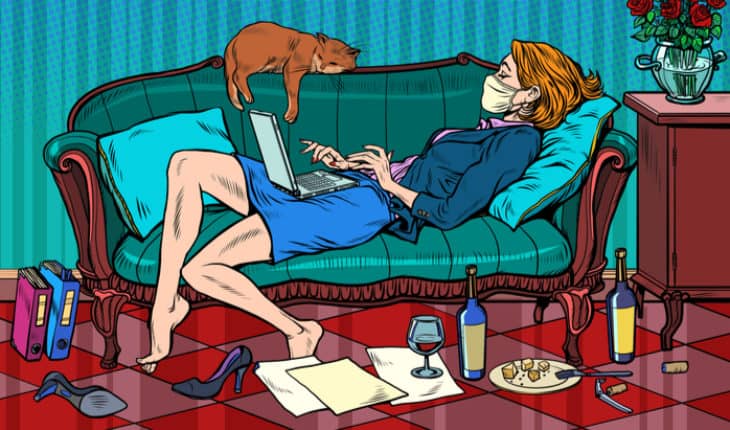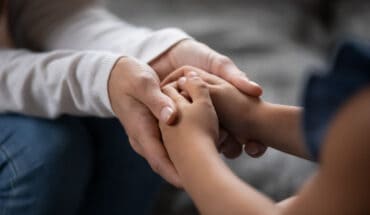COVID ‘burnout’: When ‘working from home’ means longer hours and poorer mental health – especially for women, says Priory expert as he urges more support for the ‘sandwich generation’
• Psychiatrist Dr Niall Campbell talks about COVID-burnout for the generation of women ‘sandwiched’ between jobs, a dependent child and an adult relative who requires care
• Many are working long hours because of fears of job loss, and because days and nights ‘have no obvious boundaries’
• Some women are in the ‘club sandwich generation’ – nearing retirement but caring for elderly parents while supporting grown-up children and grandchildren
• Alcohol can become a ‘crutch’ where there is an absence of support
A Priory psychiatrist has highlighted the mental and physical pressures on the ‘sandwich generation’ of working women who are caring for different generations of their families while holding down jobs during the pandemic.
Dr Niall Campbell, a consultant at the Priory Hospital in Roehampton, south-west London, said the stress was even higher on a growing subset of the ‘sandwich generation ‘– women who not only had to look after their elderly parents and children but also grandchildren, dubbed the ‘club sandwich’ generation.
Speaking after the Government announced new COVID restrictions, he said women had the ‘rougher edge’ of the COVID pandemic because their work and caring responsibilities meant they were always ‘on’. A report last year, by the Office for National Statistics, found more than one in four (27%) of ‘sandwich carers’ showed symptoms of mental ill-health while caring for both sick, disabled or older relatives and children.
“Long hours generally mean less sleep, poorer diet, less exercise, more stress, feeling you are constantly ‘on’ and having to prove yourself,” Dr Campbell said.
“The pandemic is particularly harsh on women who are balancing work with a family, and looking after elderly parents and possibly grandchildren and running a home.
“All types of workers are affected. High flyers can be badly affected because they tend to drive themselves, to the detriment of their health. They may also be shouldering large responsibilities at home and work, budgets, and teams. But it affects those at every level, including people struggling to get by, who may have three jobs and family responsibilities.”
And it can especially affect the club sandwich generation – women primarily in their 50s and 60s, sandwiched between ageing parents, adult children, and grandchildren. Many of them may also have sick spouses who need care.
Caregiving is often the prime responsibility of women, who can in some circumstances be caring simultaneously for four generations, he said.
His comments follow numerous studies of working parents’ lives during Covid-19 which have shown that a disproportionate share of the burden is still falling on women, especially older women.
Researchers from Boston Consulting Group, which surveyed more than 3,000 people in the US and Europe, found that working women spend an average of 15 hours a week more on unpaid domestic labour than men. Meanwhile work-life conflict is linked to ‘poor physical and mental health, and life dissatisfaction’.
“Women, rather than having it all, are still often ‘doing it all’,” Dr Campbell said. “They are running homes, raising children, often working full-time, looking after elderly parents. We used to call these women the sandwich generation because they were juggling responsibilities. Increasingly, as we live longer, it will be more like the club sandwich generation.”
He added: “Working from home means the working day is no longer defined, so people in my experience are working even harder than normal. Many of course are nervous about losing their jobs so are working very long hours to prove their worth to their bosses.
“The benefit of being around family 24/7 has often quite stressful in reality – and alcohol can become the prop.”
He said people often turned to alcohol as a coping strategy, which it wasn’t, and depression and anxiety were often overlooked. “Women need support, and access to support.
“Older women do unpaid – often undesirable work – that few others are willing to take on. This can be invisible, and lead to mental health conditions – and women often put themselves last when it comes to asking for help.”
- Gut microbiome could delay onset of type 1 diabetes - 3rd April 2025
- The da Vinci 5 Robot Is Set To Transform Bariatric Care: - 31st March 2025
- Beyond money: the hidden drivers fuelling child food insecurity - 31st March 2025






